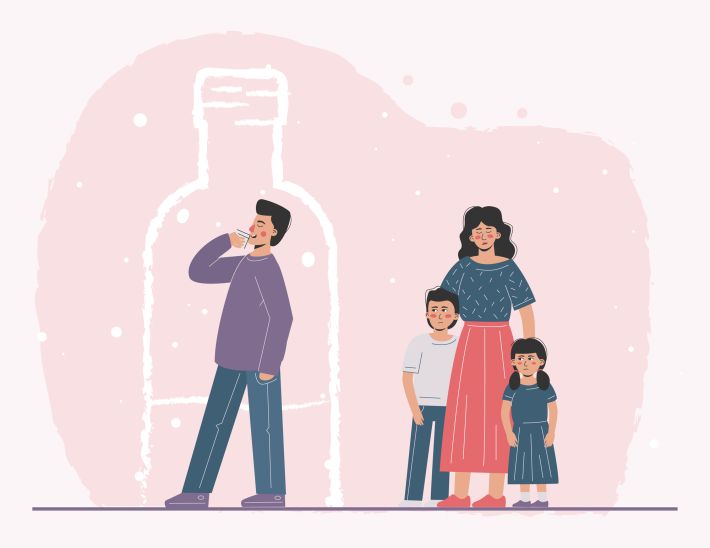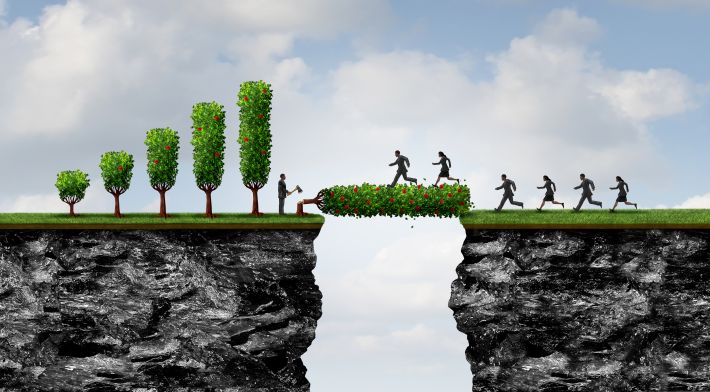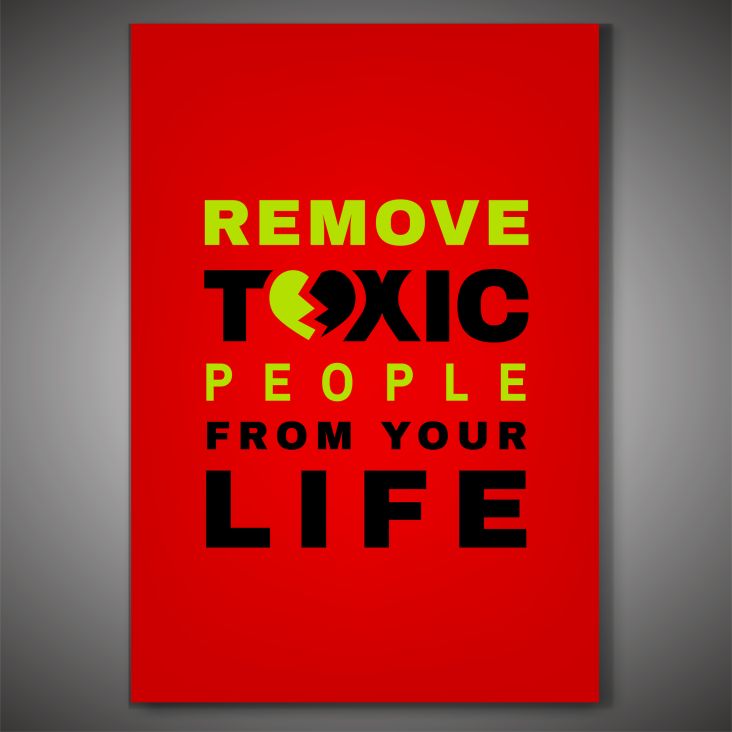- in Relationships by Tony
- |
- 1 comments
Co-dependency Malaise

Robert Burney once coined the term "co-dependent" in the 1940s and defined it as someone who depends on another person to meet their emotional needs. Co-dependency is putting somebody else's needs before your own.
Thereby, being co-dependent is hardly the same thing as simply being dependent. A co-dependent person may feel responsible for the happiness or well-being of others — especially if they have experienced abuse or neglect growing up.
This term was widely used in the 1950s in the context of Alcoholics Anonymous, and Co-dependency behaviour is often found in alcoholic families.
More...
The expression co-dependent was employed initially as being synonymous with the earlier term enabler.
As it was broadly defined, within Alcoholics Anonymous assisted problem drinkers who were then hidden by enablers who made excuses for them by minimising or denying the many repercussions of their dysfunctional behaviour to maintain the family secret.
The enabler or co-dependant supported—or at least enabled, but tolerated their behaviour.
Alcoholism

Since then, it has been applied not only to addictions in general but well beyond that to other types of mental health and behavioural problems, including domestic violence and emotional abuse.
To clarify, Co-dependent means "dependent upon another person who has a power imbalance in the relationship." It describes someone who relies too heavily on others to meet their needs.
People with co-dependency problems tend to focus on what they need from others rather than on what others need. They often feel responsible for making sure everyone else is happy and satisfied, which leads to feelings of guilt and self-doubt.
In this way, the underlying issue with co-dependency isn't really that you care too much, but rather that you don't care enough by losing sight of your own values and desires.
While your relationship is based upon love and sentiments, you are not directly responsible for them, it is unhealthy when your individuality, is dependent upon someone else. They then sacrifice themselves to ensure their significant other is satisfied you are, by virtue, actually, maintaining an unhealthy relationship.
It goes without saying that it is nice knowing you're being supportive, and it feels positive knowing you're contributing to someone else's success and happiness.
Unfortunately, you can lose sight of your values, responsibilities, needs and desires by adopting this caretaker role.
What is Altruism?

A key question to ask in any relationship is whether you are concerned with your companion's developmental support and sacrifice ("altruism"), as well as decreased respect for oneself ("selflessness").
Every relationship will have an element of sacrifice, and your willingness to sacrifice for your relationship shows that you care for your partner. A partner who feels loved and cared for is more likely to reciprocate with loving-kindness towards you in building a healthy relationship.
In healthy partnerships, altruism is a two-way street. Consequently, individuals who are prepared emotionally to make sacrifices for others are often regarded as victims or altruistic.
A longitudinal study of healthy males found that altruism increases significantly in the second half of life – not simply because we become more selfless as we age, but rather because helping others becomes more rewarding for them.
Co-dependency in a relationship usually occurs when one of the partners has a personality Disorder; you might find yourself stuck in a toxic relationship.
Toxic Relationship

There is often an attraction between individuals with co-dependent inclinations and those with narcissistic tendencies. Narcissists, with their ability to get others to "buy into their vision" and help them make it a reality, they seek and attract partners who will put others' needs before their own.
In this case, the prey tends to be people-pleasers, thriving on helping others (or even thinking they may 'fix' them). The target might fulfil their need to be needed—and thus valued by another.
When caring for another person stops you from meeting your own needs, or if your self-worth depends on being needed, you may be heading down the co-dependent path.
Many co-dependents are attracted to and maintain a long-term breakup-resistant relationship with pathological narcissists.
Most co-dependents are selfless and submissive to the needs and desires of others over themselves. They are caring and self-sacrificing people whose altruism and good deeds rarely reciprocate.
When you consider that compassion is a crucial motivator of altruistic behaviour, you are certainly a lamb to the slaughter in this case.
Personality Disorders

Both Borderline Personality Disorder (BPD) and Narcissistic Personality Disorder (NPD) Will each have comparable behaviour patterns, including swift mood swings, impulsive behaviour, sudden anger and aggression, potential violence, substance abuse, and a great fear of abandonment.
The person usually has an inflated self-image and is exceptionally charming, fun, and persuasive. At the same time, these individuals are arrogant, self-occupied, and have a notable lack of empathy (Eddy & Kreger, 2011).
Fear of Abandonment

Fear of abandonment - For many co-dependents, relationships are significant—so much so that they fear they will be left alone if they are not there for the relationship partner 24/7. If a relationship ends, it can feel like the world has come crashing down.
Co-dependency may avoid conflict by avoiding conversation to prevent antagonising their partner, not to rock the boat. Some people have never felt safe or loved as children and turn to dependents to fill this void.
Psychologist Madeleine Mason Roantree, who deals first-hand with couples on the brink of a breakdown, argues that the fear of being alone is the most common reason for sticking it out in a bad relationship.
Others may be in denial about the true colours of their partner or the essence of the relationship," she tells The Independent.
Alternatively, They may believe they are a failure if they leave the relationship and think they will lose face by doing so.
When people perceived that the partner was highly committed to the relationship, they were less likely to initiate a break-up," said lead author Samantha Joel, an assistant psychology professor at the University of Utah.
Splitting
Those with Borderline Personality Disorder have a predisposition for a mindset called "splitting", where they fluctuate between viewing people as either entirely good or evil. Rather than experiencing shades of grey, sufferers perceive relationships as black or white.
In a previous article, Sarah Cooper, who had recently been diagnosed with borderline personality disorder, described her experience with splitting.
"I can get consumed in my anger toward people," she wrote. "All my memories with that person become tainted, bad and wrong. Just thinking of them fills me up with anger."
The most crucial time for a co-dependent is just after a relationship finishes. Many will feel lost after a relationship ends and likely jump into another quickly on the rebound.
They tend to attract a particular type of partner (emotionally distant, abusive), meaning the baggage from the previous relationship is then taken into the new experience.
I have advocated many times in posts that developmental trauma and parenting styles play a significant role in co-dependency development.
An authoritarian family unit is likely present in most of those cases.
Causes of co-dependency
Previous studies on co-dependency was extensively investigated in relationships, and here are three types of co-dependency:
- Emotional
- Behavioural
- Spiritual
1. Emotional co-dependency occurs when you give up yourself to take care of another person. You do things like go out of your way for your partner even though it might hurt you personally.
2. Behavioural co-dependency refers to behaviours such as being jealous, controlling.
Finally, 3. Spiritual co-dependency involves having beliefs about life that are unrealistic. For example, you believe that everything happens for a reason, or that you must help others to succeed.
Causes of co-dependency can include the following:
- Previous physical, emotional, or sexual abuse
- Parents or caregivers that ignore a child's needs in favour of their own
- A caregiver with a personality disorder, such as borderline, narcissistic, or dependent personality disorder, may encourage you to suppress your self-identity to accommodate them
- Controlling or overprotective caregivers who prevent a child from learning safe limits and setting healthy boundaries
- one or both parents leaving the family, making you afraid of future abandonment.
- Caregivers alternating between loving and present and distant or unavailable, contributing to an anxious attachment
- Criticism and bullying from parents, siblings, or peers that leaves you with lingering insecurity in relationships
Perhaps a primary caregiver living with health or mental health concerns put you in a position where you needed to take care of them.
The care taking behaviours you learned may become so natural that you can’t help but carry them into future relationships.
Co-dependency vs dependency

Some level of dependency is needed within a healthy relationship. It may be challenging to make it through life independently, and most people will thrive with camaraderie and social support.
A loving, healthy relationship works best when both partners, depend upon each other. This means you don't just focus on their demands, or draw your value from self-sacrifice, but are available to support them when required.
Because Co-dependency is a learned behaviour, it's possible to unlearn this personality trait that is causing you distress and affecting your relationships and well-being.
Therapeutic Support for Co-Dependency
Co-dependency is a complex dynamic that an individual can't always resolve appropriately on their own.
A mental health professional can offer support with:
- recognising key signs of co-dependency
overcoming people-pleasing tendencies
addressing related mental health symptoms, including feelings of guilt, anxiety, or depression - reconnecting with your sense of self
- setting healthy boundaries

According to Ellen Biros, a psychotherapist in Georgia.
Co-dependency can make it difficult to:
- set and maintain healthy boundaries
- validate and protect yourself emotionally
- make decisions on your own
As a result, you might go on to "pick emotionally abusive partners or friends, have trouble recognising when you need to protect yourself, and remain in dysfunctional relationships,"
Co-dependency can leave you feeling like you lack purpose when you aren't providing support. But entirely devoting yourself to others may prevent you from doing anything for yourself.
In conclusion
Those who fall under the label of co-dependent gravitate towards destructive relationships. They will give their resources to the abusive person while neglecting their own needs.
This term originally stems from an addiction disorder, and children of an addict tend to develop Co-dependency if they witness their non-addicted parent dismiss the problem. At the end of the day, when it comes to relationships, you are not responsible for other people's happiness.
Don't be scared to walk away from hateful manipulators. When someone cares about you, they will make an effort.
Perhaps it is time to say No.
Finally, from the idioms, we can't live with them and can't live without them. It's time to get some professional relationship help and guidance.

Aristotle’s view that true friendship can only exist based on mutual goodwill and virtue.
Aristotle







[…] and codependency are two distinct concepts, but they share some similarities. Echoism refers to a phenomenon where […]